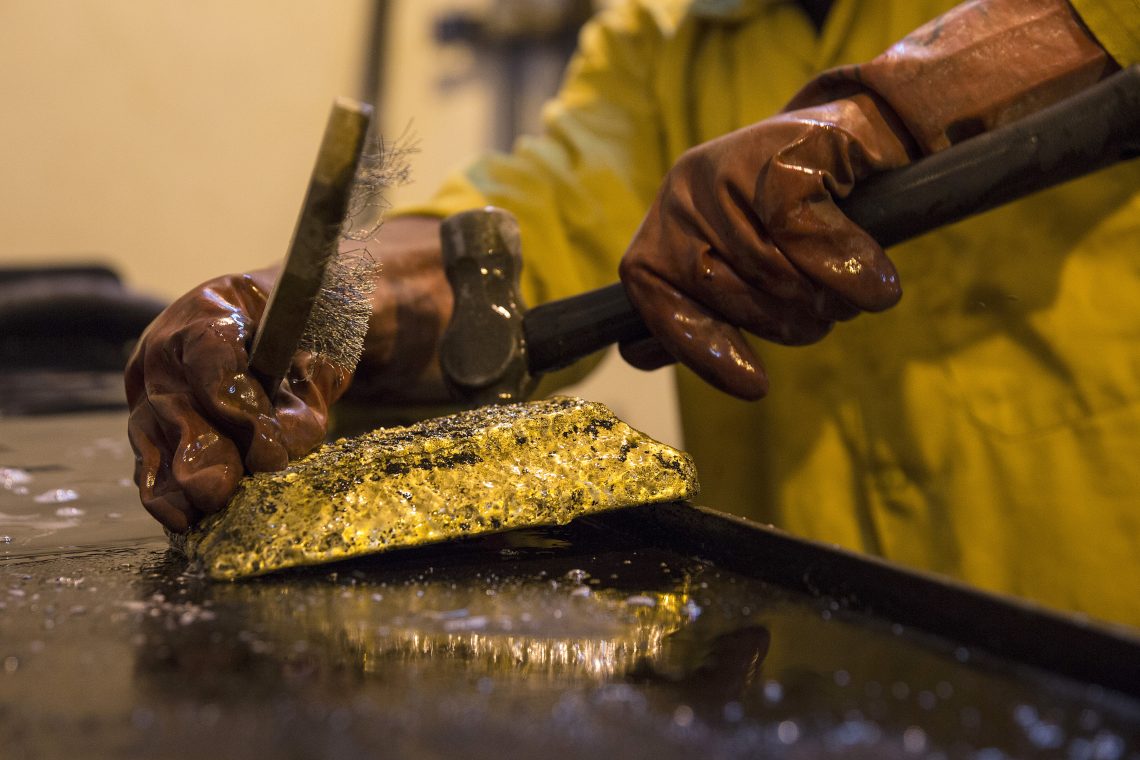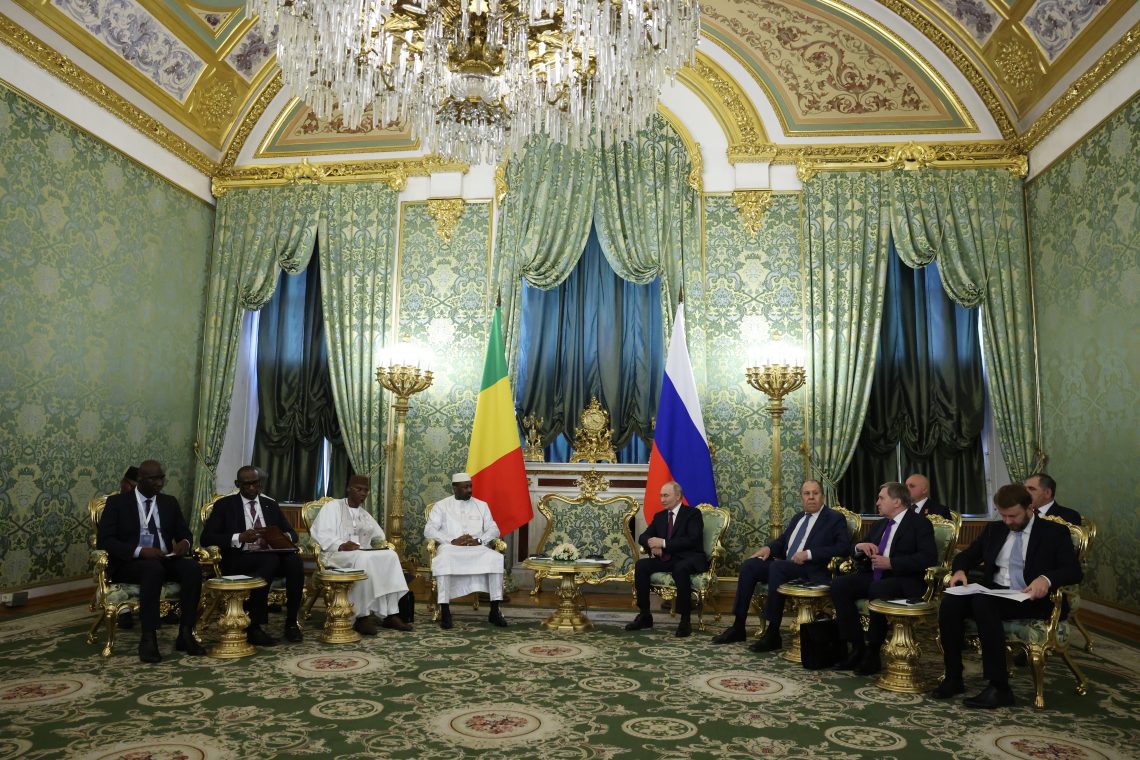
In a nutshell
- Insurgencies, weak institutions and poverty fuel instability in Mali
- Military regimes trade resource concessions for foreign security support
- Russian influence to continue, but the U.S. and China may find openings
- For comprehensive insights, tune into our AI-powered podcast here
The political and geopolitical landscape of the Sahel has been transformed over the past decade by insurgency, instability and shifting allegiances amid competition for resources. Today, Mali, Chad and Niger are all under military rule, the influence of former colonial rulers has faded and international peacekeepers have little impact.
To prevent power vacuums and being overrun by Islamic insurgents, the various juntas and local strongmen offer contracts to their militaries or third-party security groups in exchange for loyalty, typically involving the extraction of precious metals and other resources. Currently, Russia is the main supplier of foreign mercenaries in the Sahel, while other global powers are exploring different approaches to stabilize the region and prevent the violence from spilling over into Europe, the Middle East and southwest Asia.
Democratic elections are now falling by the wayside as the Sahel’s deepening vicious cycle shows no signs of abating. Military rulers will try to stay in power by neutralizing the opposition and strengthening their patronage networks. This process is likely to continue if the juntas and their chosen mercenaries provide at least some tangible benefits to the local populations.
Mali has been the epicenter of this turmoil, with the insurgency beginning in 2012. Over a decade later, tensions with France have reached a breaking point, as illustrated by the recent arrest of a French citizen by Malian authorities. Meanwhile, the junta led by General Assimi Goita is working to consolidate its grip on power through a mix of institutional engineering and repression of the opposition.
To understand the current situation and its implications, it is necessary to return to 2012, when President Amadou Toumani Toure was overthrown in a coup staged by mid-ranking soldiers who formed the National Committee for the Restoration of Democracy and State. Discontent within the military stemmed from a lack of resources to confront the Tuareg National Movement for the Liberation of Azawad. This is a separatist group composed of Tuareg fighters returning from Gaddafi’s Libya and Islamist insurgents led by groups such as the Movement for Oneness and Jihad in West Africa, Ansar Dine, and al-Qaeda in the Islamic Maghreb.
The junta led by General Assimi Goita is working to consolidate its grip on power through a mix of institutional engineering and repression of the opposition.
At the time, France was still the foreign power most deeply engaged in Mali. In 2013, it launched Operation Serval, which stopped several terrorist advances and laid the groundwork for the Algiers Process and the 2015 Agreement for Peace and Reconciliation in Mali, signed between the government and separatist groups. Yet the conditions for lasting stability remained elusive. In 2014, Operation Serval was replaced by Operation Barkhane, which expanded to cover Mali, Burkina Faso, Niger and Chad, becoming France’s largest overseas military deployment. The operation ended in 2022.
Meanwhile, the political landscape was also shifting. In 2020, Mali’s President Ibrahim Boubacar Keita, elected in 2013 and re-elected in 2018, was ousted in a coup by the National Committee for the Salvation of the People. One year later, General Goita deposed the interim president in another coup.
Since 2010, Mali’s military spending has skyrocketed, increasing by 38 percent between 2020 and 2024 after mushrooming threefold between 2010 and 2020.
Following the 2020 and 2021 coups, the military junta has systematically delayed elections. So far this year, General Goita further entrenched his power. After protests erupted in Bamako, Mali’s capital and largest city, calling for a return to constitutional and democratic rule, the junta in May dissolved all political parties and detained several protesters. Moussa Mara, former prime minister and a leading figure of the opposition, was accused of undermining the credibility of the state after publishing a post on X describing the detained as “prisoners of conscience.”

In July, the transitional parliament granted General Goita a five-year presidential term. According to the bill, the mandate can be renewed “as many times as necessary,” until pacification of the country is achieved. As a result of all these factors, instability has become the norm. And in August, the junta arrested Malian soldiers on charges of plotting a coup.
The military takeover triggered significant changes in Mali’s strategic alignments. MINUSMA, the United Nations mission established in 2013, withdrew in 2023. Targeted by popular protests and accused by the transitional authorities of stoking tensions, its inglorious exit underscored the broader crisis of a peacekeeping system hampered by vague mandates, heavy bureaucracy and growing demands for sovereignty.
By 2023, Mali was home to a complex array of armed actors, including the national army, Tuareg rebels, jihadist groups, self-defense militias and Russia’s erstwhile Wagner group. In December 2023 the government recaptured Kidal, the symbolic stronghold of the Tuareg. This marked the final blow to the Algiers Agreement, already deeply eroded by mutual mistrust, unrealistic international interventions and the central authorities’ refusal to grant greater autonomy to ethno-regional groups.
A defining feature of this realignment has been Bamako’s rapprochement with Moscow. Mali plays a central role in Russia’s efforts to expand its foothold in Africa, both directly and indirectly, through paramilitary groups such as the Wagner group, now replaced by Moscow’s Africa Corps.
Military cooperation is closely tied to economic interests, particularly through the granting of mining concessions to Russian companies in exchange for support and security of the junta. Reflecting the alignment with the Kremlin, in 2024, Mali severed diplomatic relations with Ukraine, accusing it of providing intelligence and military support to rebel groups.

On the regional front, relations with Algeria, which shares a 1,400 kilometer-long border with Mali, are also fraught with tension. The junta accuses Algiers of backing Tuareg rebels and sponsoring terrorism and has recently lodged a complaint with the International Court of Justice over the destruction of a Malian military drone.
Mali has also withdrawn from ECOWAS, or the Economic Community of West African States, and, together with Burkina Faso and Niger, established the competing Alliance of Sahel States. Equally significant is the decline of French influence in Mali. French troops left in 2022, and bilateral defense agreements were subsequently terminated. In 2023, following a constitutional referendum, French was dropped as an official language.
In fact, the junta’s popularity cannot be understood without considering the widespread anti-French sentiment across Mali. In this context, the regime cultivates a strongly populist, anti-French stance, framing its actions as a reclamation of sovereignty against Paris’s “neocolonialism,” a rhetoric that resonates particularly with urban youth.
While historical grievances play a role, France’s unpopularity is also tied to perceptions of double standards in its Sahel policy. While Paris denounced the Malian junta’s irregular takeover, it supported General Mahamat Deby, who assumed power in Chad after the death of his father, President Idriss Deby, under the protection of a military junta.
In Mali, much like other countries in the Sahel region, deep-rooted issues such as intercommunal tensions, weak institutions, rigid centralization and widespread poverty combine with factors such as organized crime, extremist groups and geopolitical shifts to fuel conflict and instability.
Amid internal violence and regional volatility, tensions between pastoralist and sedentary communities have intensified. This trend, which reflects a broader pattern observed across the continent, has led rural communities to form self-defense militias. Unfortunately, this only perpetuates a vicious cycle that resembles the security dilemma.
In urban areas, in turn, there have been demonstrations of support for the military junta. General Goita’s brand of populism, characterized by calls for “economic sovereignty” and accusations against Western players, especially France, has resonated with the youth.
Jihadist groups have both contributed to and benefited from this environment of state fragility and fragmentation. The Sahel has become the hotbed of jihadist terrorism: Five of the ten countries most affected by terrorism are located in the region, which accounts for more than half of global terrorism deaths. While Burkina Faso is, according to the 2025 IEP Global Terrorist Index, the nation most affected by terrorism, Mali ranks fourth, after Syria and Pakistan. The Islamic State Sahel Province, active in the tri-border region between Mali, Burkina Faso and Niger, is in control of portions of Malian territory. Its rival Jama’at Nusrat al-Islam wal Muslimin, linked to al-Qaeda, has attacked security and economic infrastructure.
Competition over resources also drives instability in Mali. The country is Africa’s second-largest gold producer and the junta has taken control of the industry. New regulatory changes and the construction of a gold refinery in partnership with a Russian group are expected to quadruple the country’s refining capacity from roughly 50 metric tons per year to 200 tons.
Scenarios
The evolution of the political and security landscape in Mali, as elsewhere in the Sahel, will largely depend on two factors: the ability of the juntas to remain in power, and the influence exerted by external actors. Within this framework, three potential scenarios can be outlined.
Under a first, most likely scenario in Mali, General Goita is expected to further consolidate his authority by neutralizing the opposition and securing loyalty within the armed forces. The regime will likely leverage revenues from the mining sector, especially amid rising global gold prices, to strengthen its patronage networks. Nevertheless, terrorist groups will remain a major threat to both security and economic activity.
The junta is aware that its legitimacy depends on demonstrating at least some capacity to address insecurity; however, terrorist attacks have persisted despite the presence of Russian mercenaries. This may push Bamako to diversify its external alignments. While close ties with Moscow will endure, a rapprochement with Paris appears highly unlikely, particularly given France’s internal turbulence and strained bilateral relations.
A more plausible path could be the deepening of ties with the United States. Although the Biden administration devoted limited attention to the Sahel as democratic backsliding spread across the region, the Trump administration may adopt a more pragmatic approach. Signals of this shift already emerged in July, with a meeting between U.S. and Malian officials in Bamako. For Washington, counterterrorism and security in the South Atlantic are matters of national interest, while for the junta, American support, particularly in the form of military equipment, could be instrumental in containing armed groups.
In parallel, Mali may also intensify cooperation with Italy under the Mattei Plan.
The second, less likely, scenario is that of business as usual. A continuation of the status quo would likely lead to a further deterioration of security. Terrorist groups and criminal networks could consolidate control, fostering deeper synergies between insurgency and organized crime. The Sahel has already become a key hub for global drug trafficking, and Europe has now surpassed the U.S. as the world’s largest cocaine market. Such dynamics would spur displacement and refugee flows, amplifying migration pressures on Europe.
A third, still less likely scenario is that of another coup originating from within the military. While this remains a possibility, it is less likely in the short term as the junta appears to be taking preventive measures. The recent arrest of several soldiers suspected of plotting against the regime suggests proactive steps to mitigate internal threats. Moreover, international actors like Moscow, Washington and Beijing would likely try to avoid power vacuums, which could further compromise their economic and security interests in the region.
Contact us today for tailored geopolitical insights and industry-specific advisory services.


